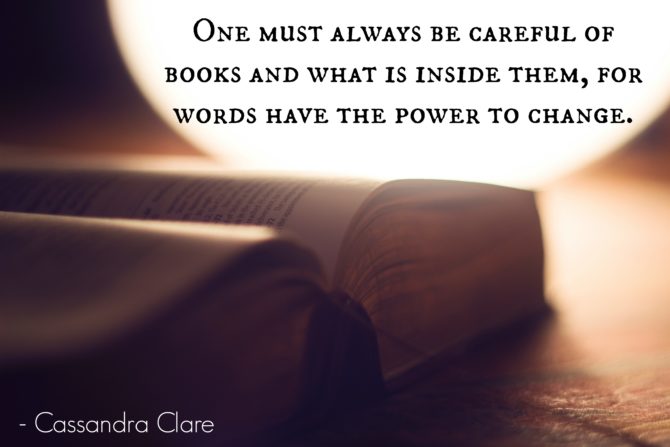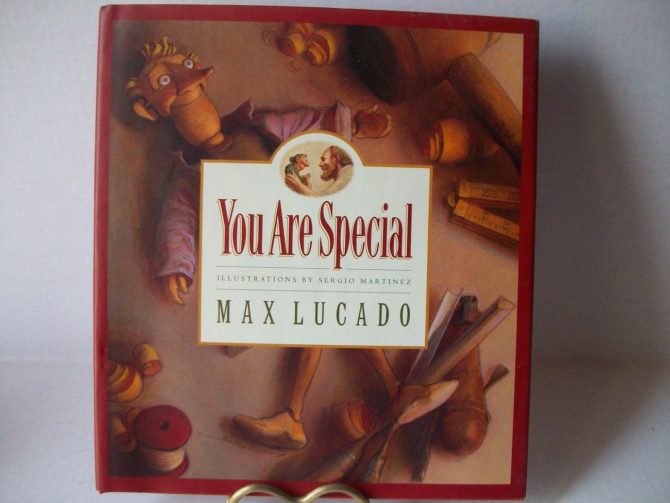I sat rigidly in the hard, straight-backed chair of my therapist’s sterile office, shivering beneath the air conditioning that was cranked up far too high for my skeletal frame to comfortably endure. I glanced up at the clock, willing it to move just a bit faster towards the hour when I could escape this room and end my discomfort.
It wasn’t just the stiff chair or the chilled air that I found intolerable. At fifteen years old and still reeling from a fresh anorexia diagnosis, this office was the last place I wanted to be.
Then my therapist cut the awkward tension in a way I hadn’t expected: he reached into the drawer of his immaculate desk and pulled out a children’s picture book. With the dignity of a refined politician, he stood, propped the book into an extended arm, and began to read.
I struggled to keep from laughing as I gave reluctant audience to my prim, middle-aged counselor’s serious impersonation of a children’s librarian. But as the story unfolded, my focus shifted from the absurdity of the picture before me and turned to the narrative itself. Slowly, the book’s simple message began to soften my frigid spirit. Through the words of Max Lucado, told in my therapist’s best narrator voice, I began to believe that I, too, was special.
I didn’t know it at the time, but I had just participated in my first session of bibliotherapy. And though no monumental issues were solved that day, in sharing that quaint book, my therapist and I made more progress in a single session than we’d previously accomplished in months of biweekly conversations.
* * * * *
Are you familiar with the concept of bibliotherapy? Though I’d been the recipient of this form of treatment, I had never heard the term itself until just a few months ago. According to GoodTherapy.org, bibliotherapy is “a therapeutic approach that uses literature to support good mental health.”
The concept of using stories for their therapeutic benefits is likely as old as the art of storytelling itself, but the term bibliotherapy is generally dated to a 1916 article in The Atlantic Monthly. In it, the author proclaimed bibliotherapy was a new science, adding “a book may be a stimulant or a sedative or an irritant or a soporific. The point is that it must do something to you, and you ought to know what it is. A book may be of the nature of a soothing syrup or it may be of the nature of a mustard plaster.”

Every bibliophile is familiar with the power books hold over our emotions; this potential for mood transformation is largely why we read. Sometimes a book is intentionally selected for therapeutic purposes, as was the case when my therapist read You Are Special to help me feel just that. In subsequent years, I’ve had other therapists assign books they knew would help me understand my conditions and emotions, or at least help me feel less alone.
Books don’t need a therapist’s stamp of approval to be an effective treatment. In fact, sometimes we turn to books so that we can avoid seeing a therapist—hence the term SELF help. This entire genre exists for the purpose of helping us “fix” our own brains. We could spend our dollars on a therapist or life coach, paid to hold our hand as we become happier, or alter our diet, or . . . (fill in the self-help-title blank), but instead, we hop onto Amazon and click Purchase on a book that offers all the wisdom of a professional at a fraction of the cost (and even less effort).
If we are avid readers, it’s likely that books are doing their doctoring in ways that are less overt, but equally powerful. I’ve often arrived at the end of a novel feeling happier, calmer, or in some way emotionally altered by what I have read. Sometimes the book was selected for just this purpose, but it’s not uncommon for a book to touch me in a way that I didn’t even know I needed; having been read, it leaves me undeniably and inexorably changed.
Words are powerful, and they don’t need our permission to do their work.

Studies have shown that people who read have lower stress levels, higher self-esteem, and lower rates of depression than non-readers. For those of us who have long been self-medicating through reading, these statistics come as no surprise. Whether intentional or not, when we open a book we are engaging in a healing act—no shots, band-aids, or even paychecks to trained bibliotherapists required.
